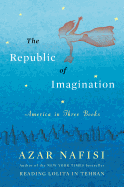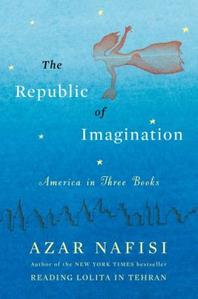

Though Nafisi never saw the young man again, she remembered his words and wondered if the privileges Americans enjoy insulate them from the world's great literature, particularly their own. Does one have to be an exile or a revolutionary to appreciate books brimming with lyrical prose and radical ideas? And as books and ideas are deemphasized in schools in favor of STEM education and career readiness for students, how can readers protect their own sacred territory, the Republic of Imagination?
Nafisi explores this "republic" and its connection to American identity through close readings of three classics. She begins with Mark Twain's Adventures of Huckleberry Finn, tracing Huck and Jim's journey down the Mississippi along with Huck's evolution into a true outsider: not simply a runaway boy, but a young man who chooses to live outside the rules of his society when they run counter to his conscience. Nafisi, also a voluntary exile, feels a deep kinship with Huck, and she links his story to both her own experience and to the journeys of other Iranians who escaped their homeland's oppressive regime under harrowing circumstances.
Nafisi next examines Sinclair Lewis's Babbitt, with its titular antihero who delights in the "wholesome" commercialism of his generic, midsized Midwestern city. Although Babbitt was published in 1922, its portrait of consumer society rings disturbingly true today: ubiquitous ads, collective obsession with the latest gadgets, pride in conformity. While Nafisi admits to using and enjoying consumer goods, she cautions against the "standardization of thought" portrayed in the novel, pointing to the troubling aspects of the current Common Core standards as an example. In the last section, Nafisi compares the life of Carson McCullers, a perpetual outsider, with the misfit characters who populate her novel The Heart Is a Lonely Hunter.
Throughout this book, Nafisi weaves in anecdotes from her own life as an outsider, including the day she took the oath to become a U.S. citizen. In elegant, insightful prose, she blends literary criticism, personal history and social commentary to create an enticing invitation to inhabit the Republic of Imagination. --Katie Noah Gibson, blogger at Cakes, Tea and Dreams
Shelf Talker: The author of Reading Lolita in Tehran explores American literature and identity through the lens of Adventures of Huckleberry Finn and two other classic novels.

